-
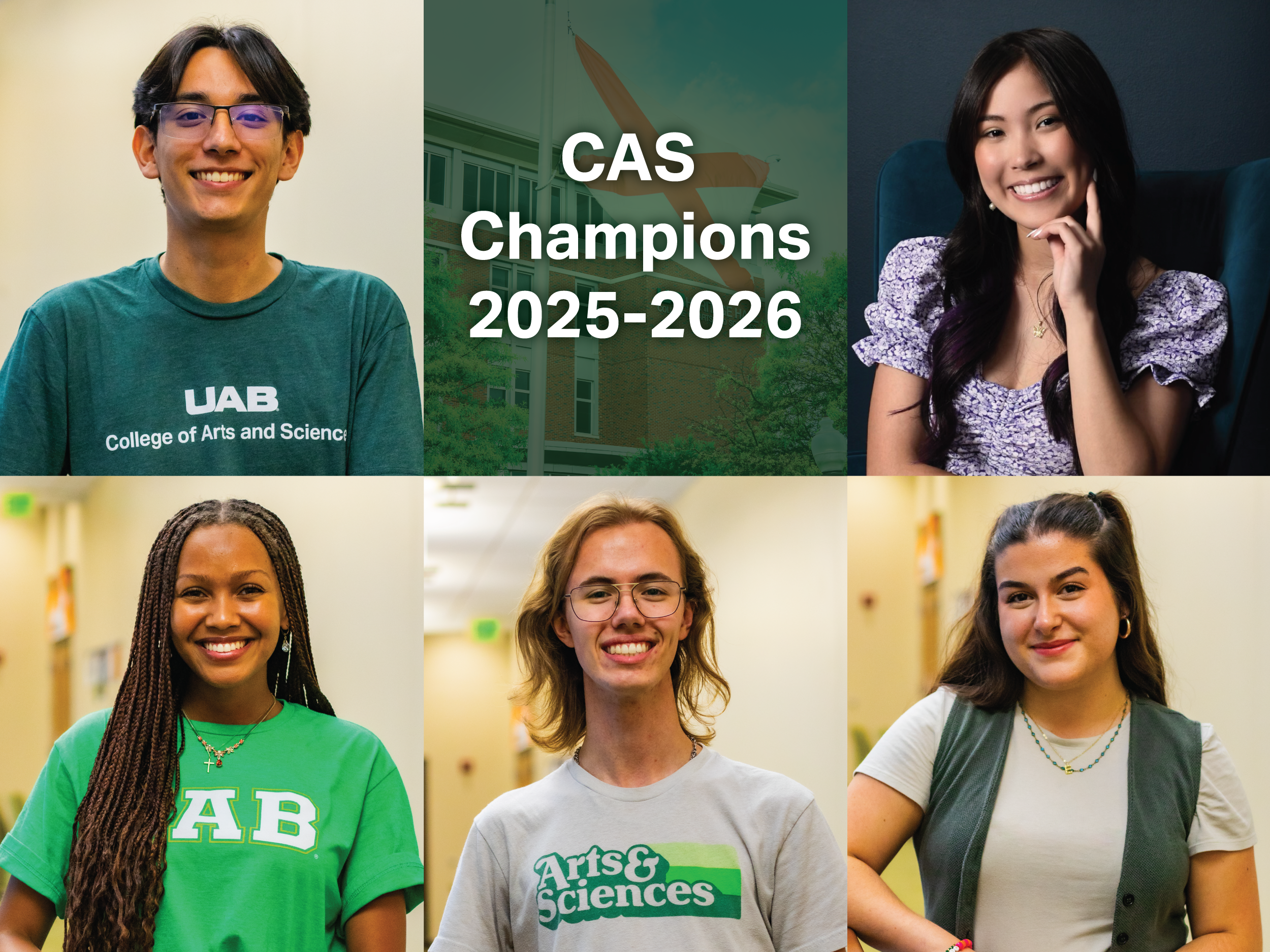 Meet the 2025 - 2026 CAS ChampionsThe College of Arts and Sciences is pleased to announce the 2025-2026 CAS Champions. CAS Champions are student ambassadors who serve as leaders within the College.
Meet the 2025 - 2026 CAS ChampionsThe College of Arts and Sciences is pleased to announce the 2025-2026 CAS Champions. CAS Champions are student ambassadors who serve as leaders within the College. -
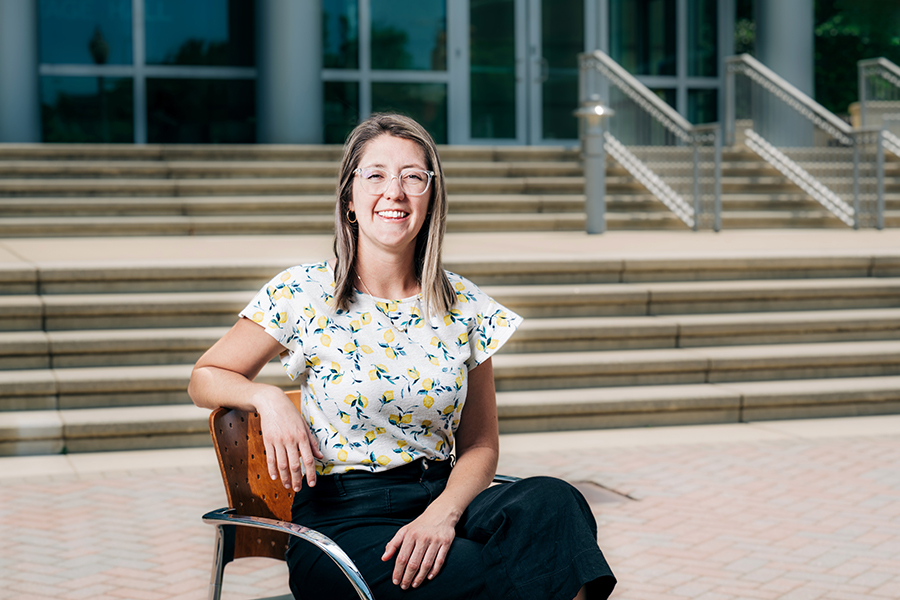 Data Dive course brings math into City as ClassroomThere are now more than 40 City as Classroom courses in UAB’s Blazer Core Curriculum. Data Dive Into Birmingham, launched this past fall, features projects with real-life datasets and guest speakers from local employers such as Alabama Power who explain how they use statistics and data science in their work.
Data Dive course brings math into City as ClassroomThere are now more than 40 City as Classroom courses in UAB’s Blazer Core Curriculum. Data Dive Into Birmingham, launched this past fall, features projects with real-life datasets and guest speakers from local employers such as Alabama Power who explain how they use statistics and data science in their work. -
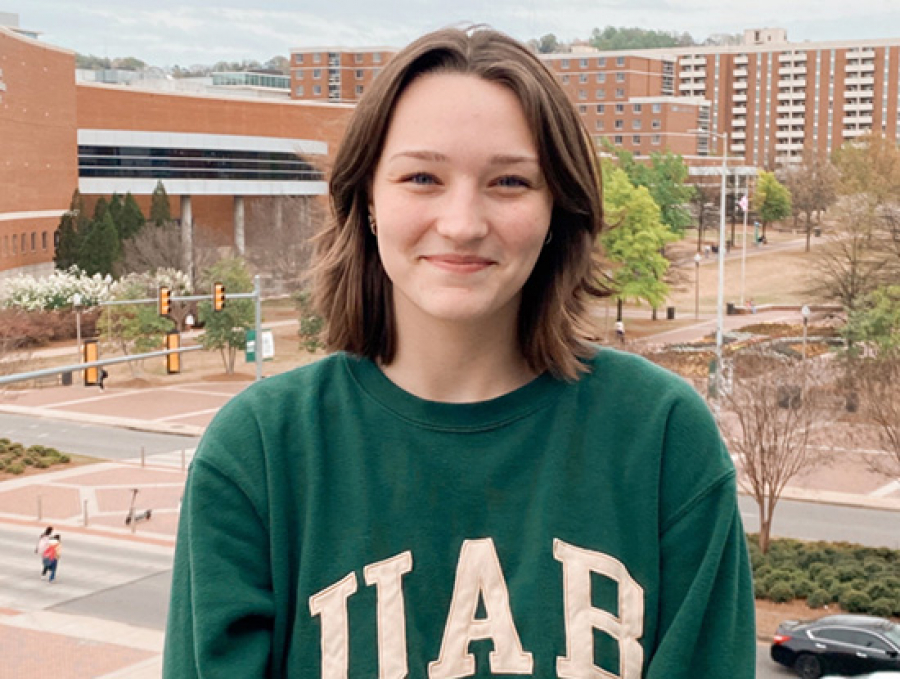 UAB mathematics sophomore is on the fast track to successDuring the second semester of her freshman year, Kiersten Ratcliff joined a research team where she discovered the versatility of math in real-life scenarios.
UAB mathematics sophomore is on the fast track to successDuring the second semester of her freshman year, Kiersten Ratcliff joined a research team where she discovered the versatility of math in real-life scenarios. -
 Department of Mathematics sophomore is on the fast track to successKiersten Ratcliff is all-in on mathematics. Since choosing to attend the University of Alabama at Birmingham for her studies, Ratcliff—a sophomore in the Department of Mathematics Fast Track Program—has been exploring the many research and mentorship opportunities the department has to offer.
Department of Mathematics sophomore is on the fast track to successKiersten Ratcliff is all-in on mathematics. Since choosing to attend the University of Alabama at Birmingham for her studies, Ratcliff—a sophomore in the Department of Mathematics Fast Track Program—has been exploring the many research and mentorship opportunities the department has to offer. -
 Sanogo found a home at UABWhile growing up in Côte d'Ivoire, West Africa, Fatoumata Sanogo, Ph.D., did not enjoy school. In fact, she actively disliked it.
Sanogo found a home at UABWhile growing up in Côte d'Ivoire, West Africa, Fatoumata Sanogo, Ph.D., did not enjoy school. In fact, she actively disliked it. -
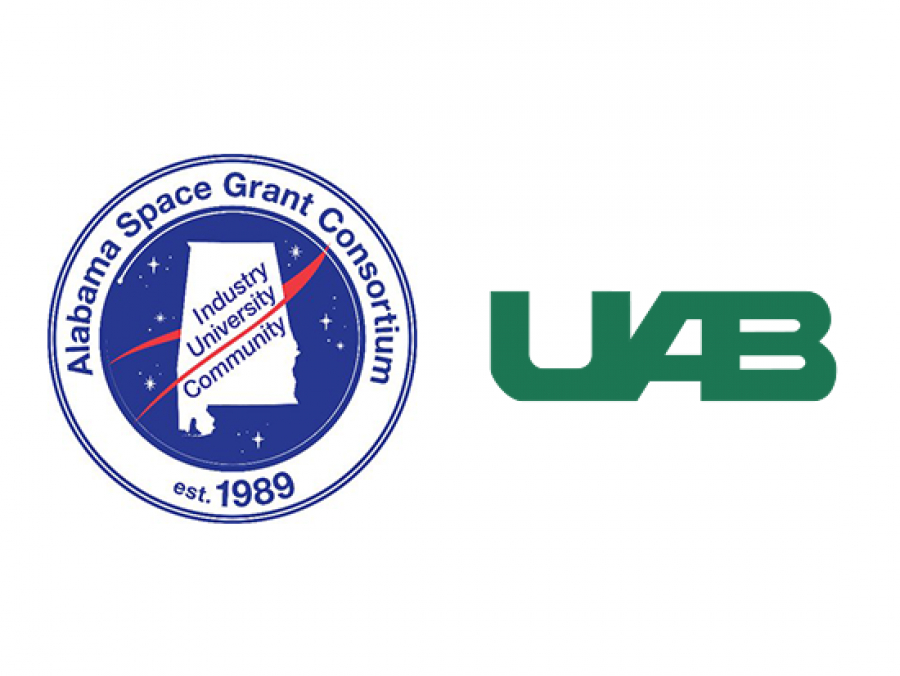 Alabama Space Grant Consortium & NASA EPSCoR awards scholarships and fellowships to nine UAB studentsNine University of Alabama at Birmingham students have been awarded NASA Alabama Space Grant Consortium scholarships and fellowships.
Alabama Space Grant Consortium & NASA EPSCoR awards scholarships and fellowships to nine UAB studentsNine University of Alabama at Birmingham students have been awarded NASA Alabama Space Grant Consortium scholarships and fellowships. -
 Explore graduate programs in UAB’s College of Arts and SciencesThe University of Alabama at Birmingham’s College of Arts and Sciences is home to a wide range of undergraduate degrees and certificates. In fact, the College has been considered the foundation of undergraduate education at UAB for over a decade.
Explore graduate programs in UAB’s College of Arts and SciencesThe University of Alabama at Birmingham’s College of Arts and Sciences is home to a wide range of undergraduate degrees and certificates. In fact, the College has been considered the foundation of undergraduate education at UAB for over a decade. -
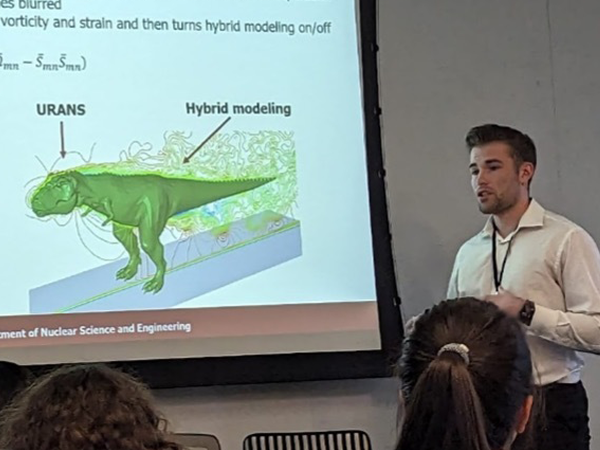 Atoms, Engineers, and Reactors: My Journey at UABLogan Alexander Burnett, a graduating senior majoring in physics and minoring in mechanical engineering, chemistry, and mathematics, shares his UAB experience in this personal reflection.
Atoms, Engineers, and Reactors: My Journey at UABLogan Alexander Burnett, a graduating senior majoring in physics and minoring in mechanical engineering, chemistry, and mathematics, shares his UAB experience in this personal reflection. -
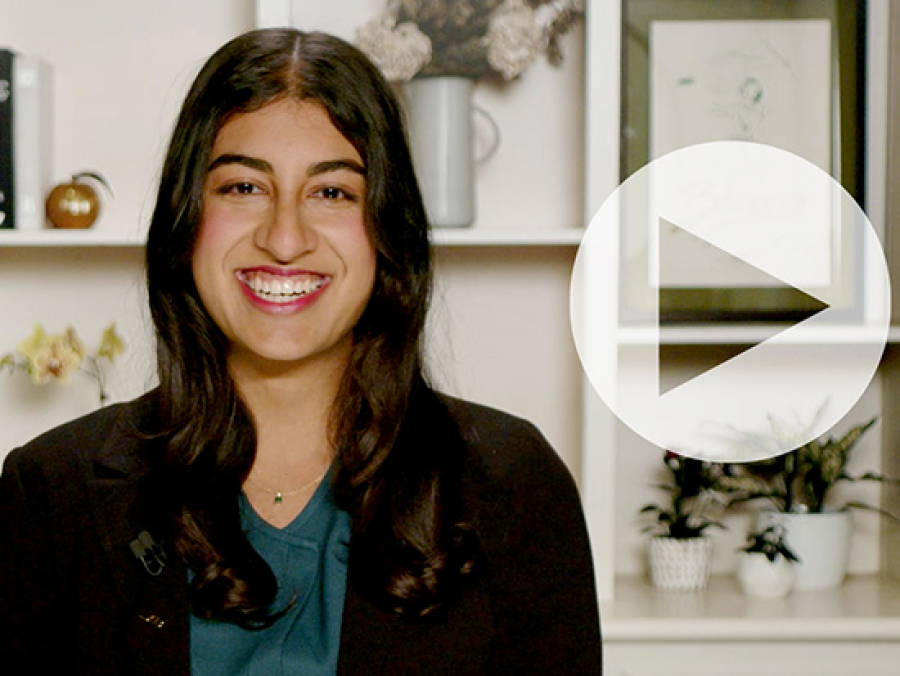 From classrooms to corporations: Computer science graduate makes a pioneering impact and has a promising future in technologyMoolchandani is also a DJ, which is not a mere hobby but a commitment that complements her academic pursuits in computer science as she blends her passion for both technology and music through this role.
From classrooms to corporations: Computer science graduate makes a pioneering impact and has a promising future in technologyMoolchandani is also a DJ, which is not a mere hobby but a commitment that complements her academic pursuits in computer science as she blends her passion for both technology and music through this role. -
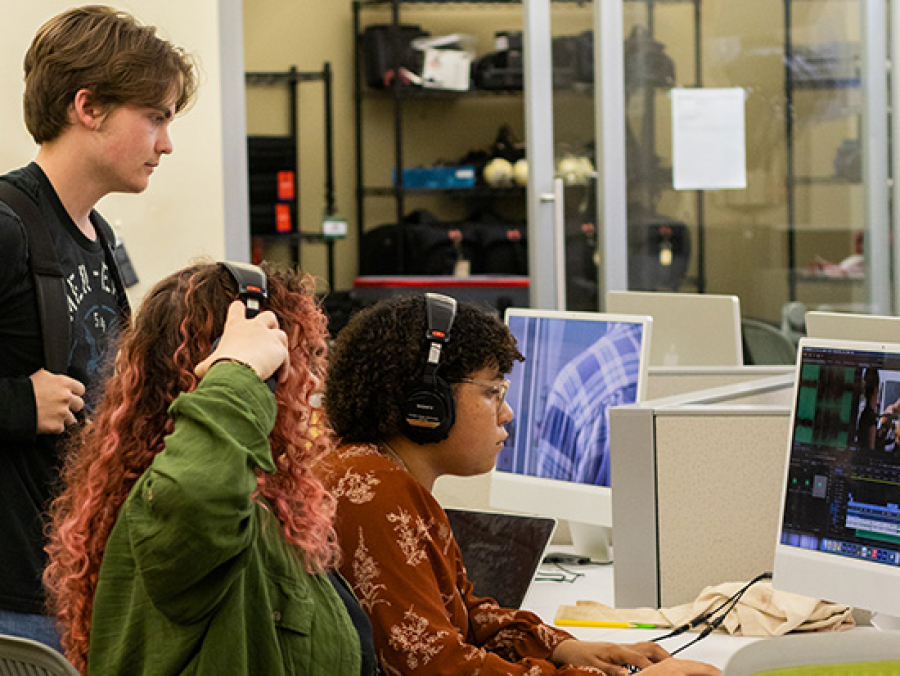 Documentaries created by UAB media studies students to premiere at the McWane Science Center IMAX Theatre, April 24UAB Media Studies students learn how to make documentary films focusing on communities and issues they care about in a semester.
Documentaries created by UAB media studies students to premiere at the McWane Science Center IMAX Theatre, April 24UAB Media Studies students learn how to make documentary films focusing on communities and issues they care about in a semester. -
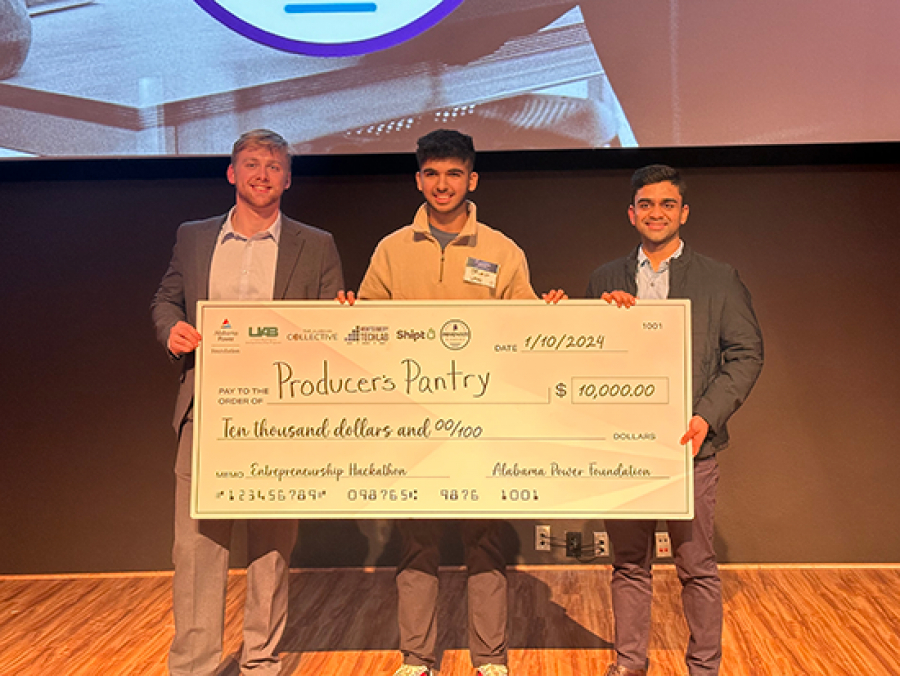 UAB student team ranks first in statewide entrepreneurship competitionA team of UAB students recently won $10,000 and first place in the statewide entrepreneurship competition, Innovate Alabama: Entrepreneurship Hackathon.
UAB student team ranks first in statewide entrepreneurship competitionA team of UAB students recently won $10,000 and first place in the statewide entrepreneurship competition, Innovate Alabama: Entrepreneurship Hackathon. -
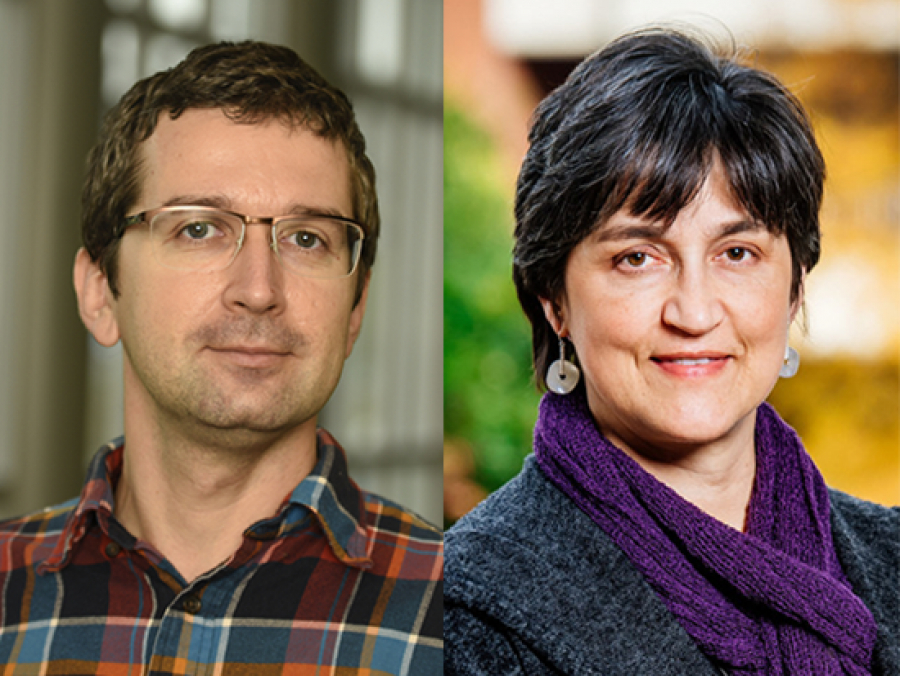 Haddin Arts & Sciences Forums set for spring 2024The University of Alabama at Birmingham College of Arts and Sciences is set to host its spring 2024 Haddin Forums.
Haddin Arts & Sciences Forums set for spring 2024The University of Alabama at Birmingham College of Arts and Sciences is set to host its spring 2024 Haddin Forums. -
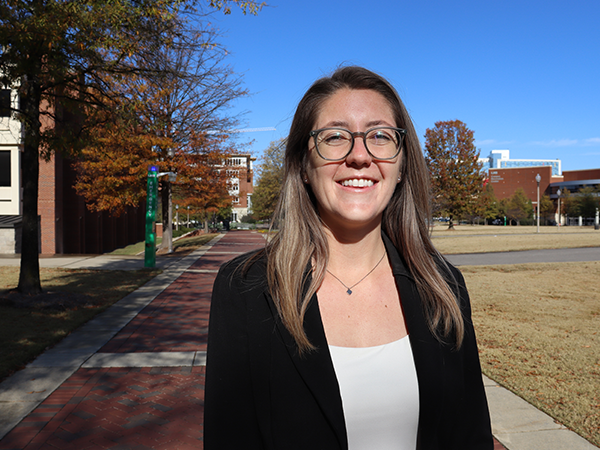 Phillips brings creativity to Department of MathematicsSometimes, when planning a future career, people need a mentor or a friend to give them a thoughtful nudge or an encouraging word to pursue their dreams and true interests.
Phillips brings creativity to Department of MathematicsSometimes, when planning a future career, people need a mentor or a friend to give them a thoughtful nudge or an encouraging word to pursue their dreams and true interests. -
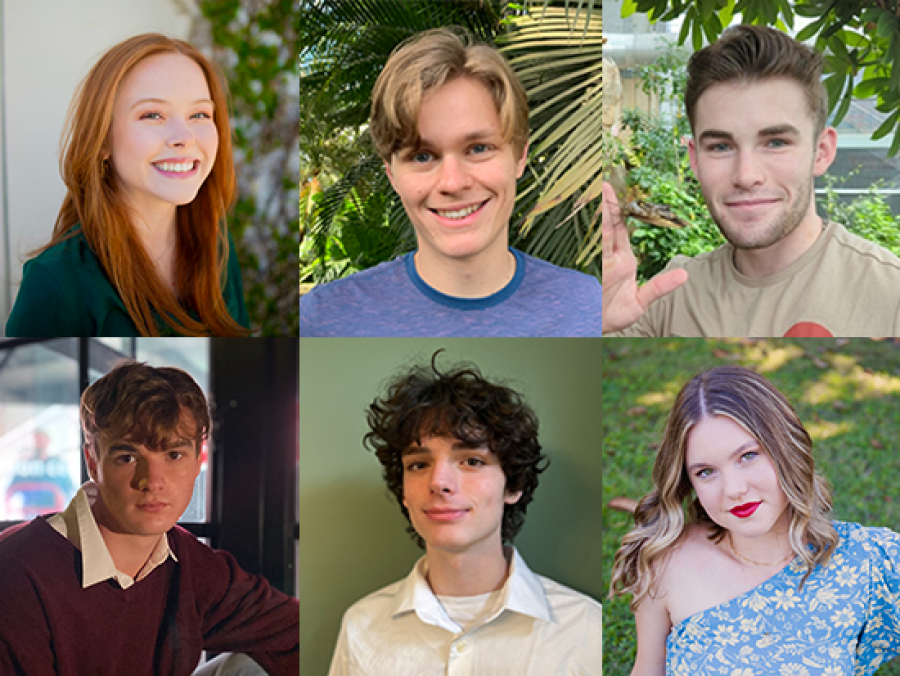 Six UAB students awarded NASA Alabama Space Grant Consortium scholarshipsSix University of Alabama at Birmingham students have been awarded NASA Alabama Space Grant Consortium scholarships.
Six UAB students awarded NASA Alabama Space Grant Consortium scholarshipsSix University of Alabama at Birmingham students have been awarded NASA Alabama Space Grant Consortium scholarships. -
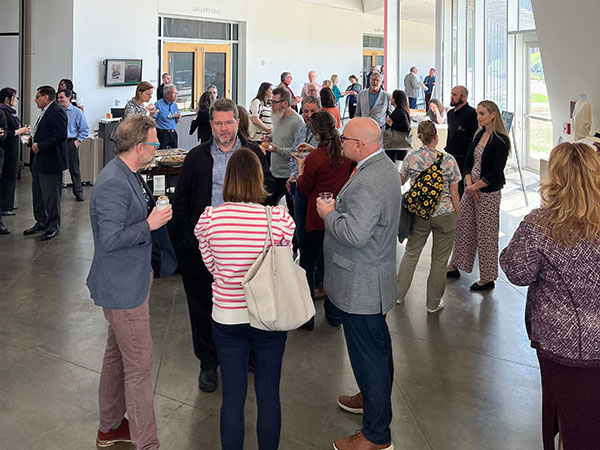 One for the Books: 22 College of Arts and Sciences faculty members published or edited books in 2022In 2022, 22 faculty members published or edited 20 books across the Arts and Humanities, Behavioral and Social Sciences, and Natural Sciences and Mathematics.In 2022, 22 faculty members published or edited 20 books across the Arts and Humanities, Behavioral and Social Sciences, and Natural Sciences and Mathematics.
One for the Books: 22 College of Arts and Sciences faculty members published or edited books in 2022In 2022, 22 faculty members published or edited 20 books across the Arts and Humanities, Behavioral and Social Sciences, and Natural Sciences and Mathematics.In 2022, 22 faculty members published or edited 20 books across the Arts and Humanities, Behavioral and Social Sciences, and Natural Sciences and Mathematics. -
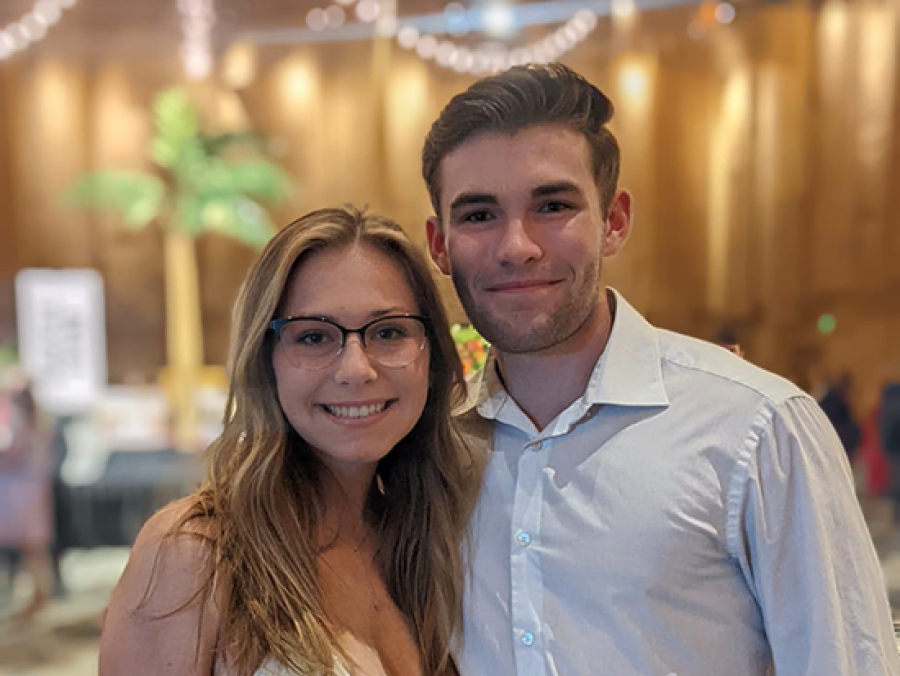 UAB couple individually place first in undergraduate research categories at the 100th annual Alabama Academy of Science ConferenceDating since October of 2021, UAB juniors Burnett and Criswell placed first in their respective research categories at the 100th annual Alabama Academy of Science Conference.
UAB couple individually place first in undergraduate research categories at the 100th annual Alabama Academy of Science ConferenceDating since October of 2021, UAB juniors Burnett and Criswell placed first in their respective research categories at the 100th annual Alabama Academy of Science Conference. -
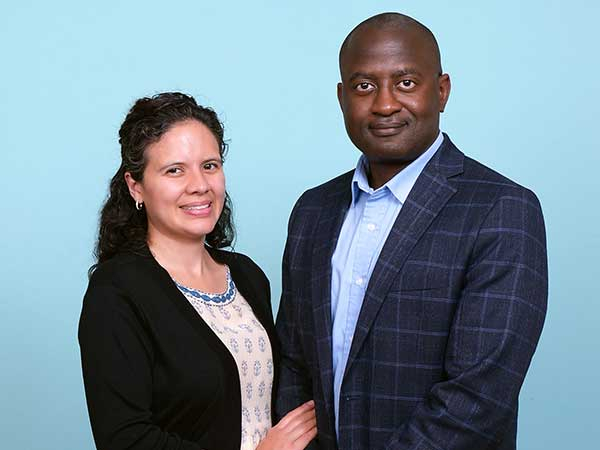 The Odaibos are ready to give backDrs. Stephen and Lisa Odaibo have dedicated their lives to medicine and helping others.
The Odaibos are ready to give backDrs. Stephen and Lisa Odaibo have dedicated their lives to medicine and helping others. -
 Department of Mathematics Hosts 19th Annual Math Talent Search ContestThe contest is motivated by the desire to help in the development of the next generation of mathematical talent in Alabama. Many professional mathematicians share a surprisingly similar point-of-origin story about the reasons they chose to pursue mathematics.
Department of Mathematics Hosts 19th Annual Math Talent Search ContestThe contest is motivated by the desire to help in the development of the next generation of mathematical talent in Alabama. Many professional mathematicians share a surprisingly similar point-of-origin story about the reasons they chose to pursue mathematics. -
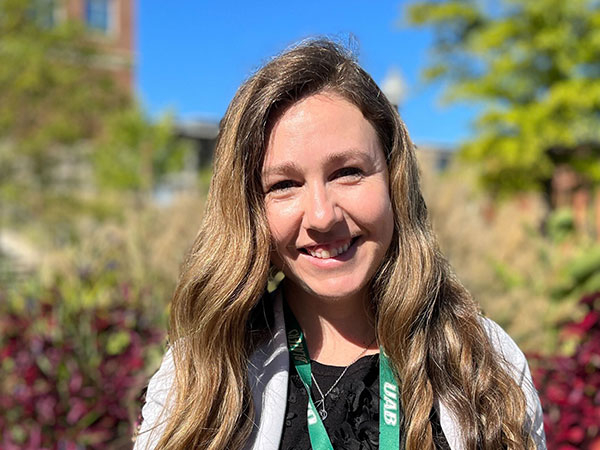 Wickman believes math is for everyoneFor Lauren Wickman, Ph.D., assistant professor in the Department of Mathematics, calculus is far more than numbers and equations.For Lauren Wickman, Ph.D., assistant professor in the Department of Mathematics, calculus is far more than numbers and equations.
Wickman believes math is for everyoneFor Lauren Wickman, Ph.D., assistant professor in the Department of Mathematics, calculus is far more than numbers and equations.For Lauren Wickman, Ph.D., assistant professor in the Department of Mathematics, calculus is far more than numbers and equations. -
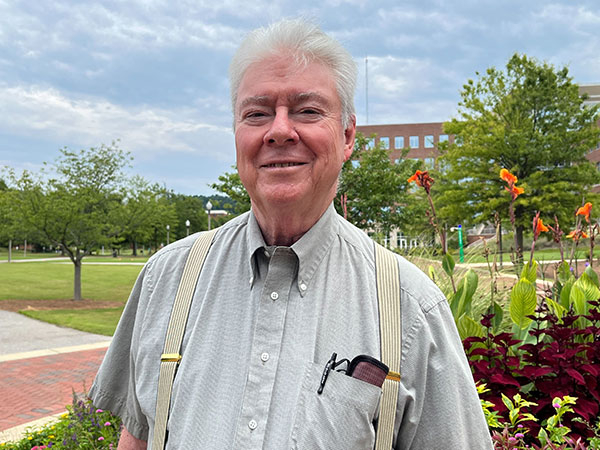 Mayer finds opportunities to innovateIf you step into a class taught by John Mayer, Ph.D., professor in the Department of Mathematics, you will hear very little lecturing. Instead, you are likely to witness an engaging environment where students do most of the talking.John Mayer, Ph.D.If you step into a class taught by John Mayer, Ph.D., professor in the Department of Mathematics, you will hear very little lecturing.
Mayer finds opportunities to innovateIf you step into a class taught by John Mayer, Ph.D., professor in the Department of Mathematics, you will hear very little lecturing. Instead, you are likely to witness an engaging environment where students do most of the talking.John Mayer, Ph.D.If you step into a class taught by John Mayer, Ph.D., professor in the Department of Mathematics, you will hear very little lecturing.